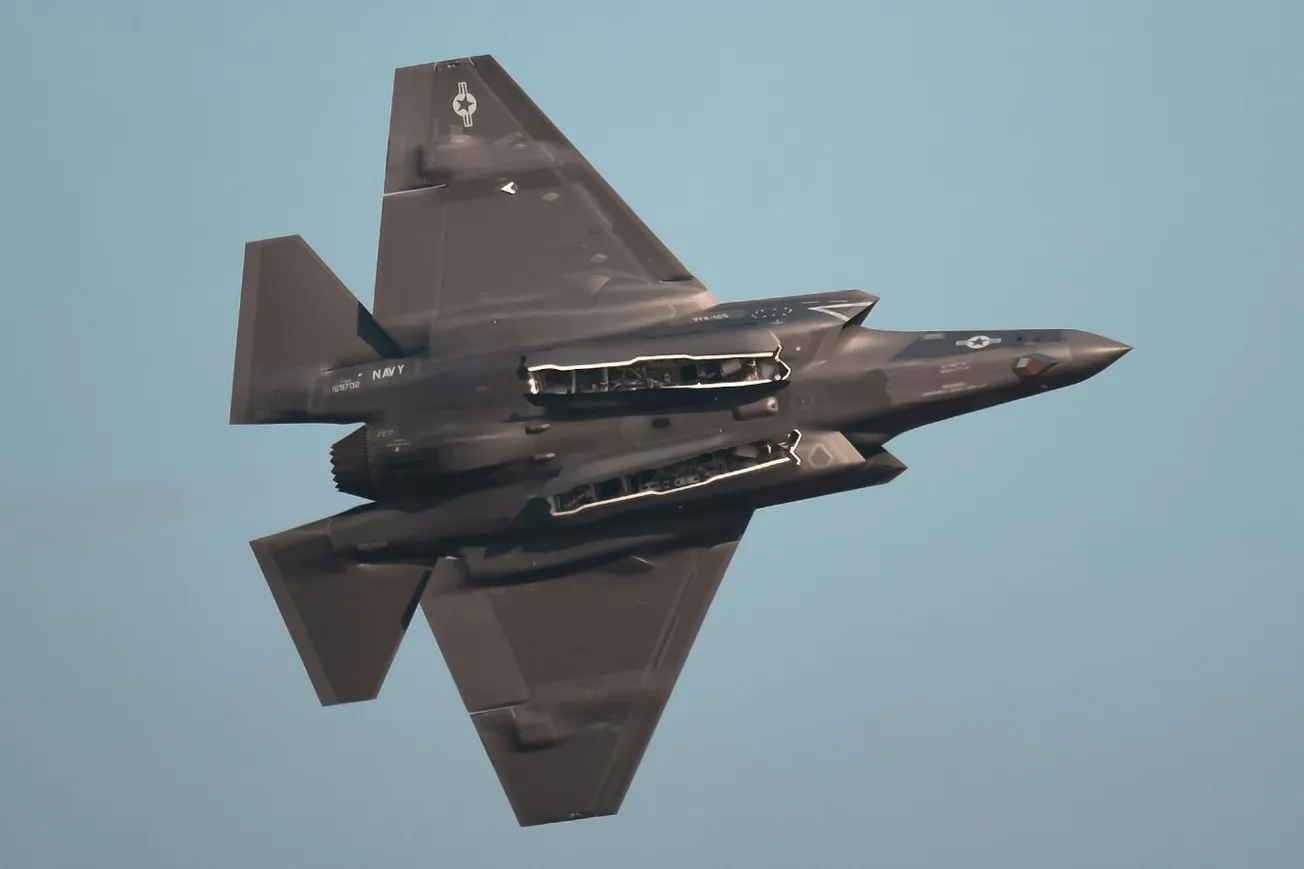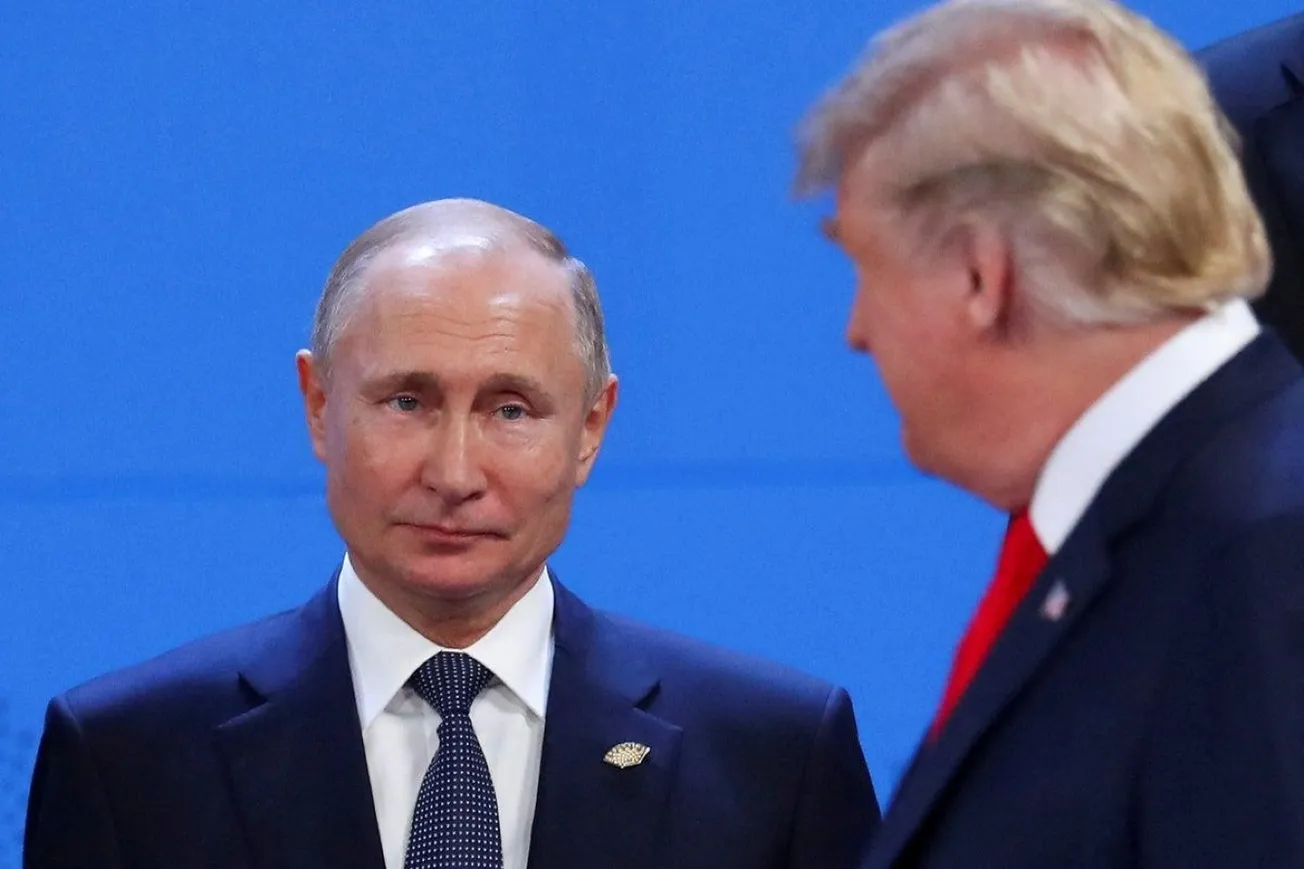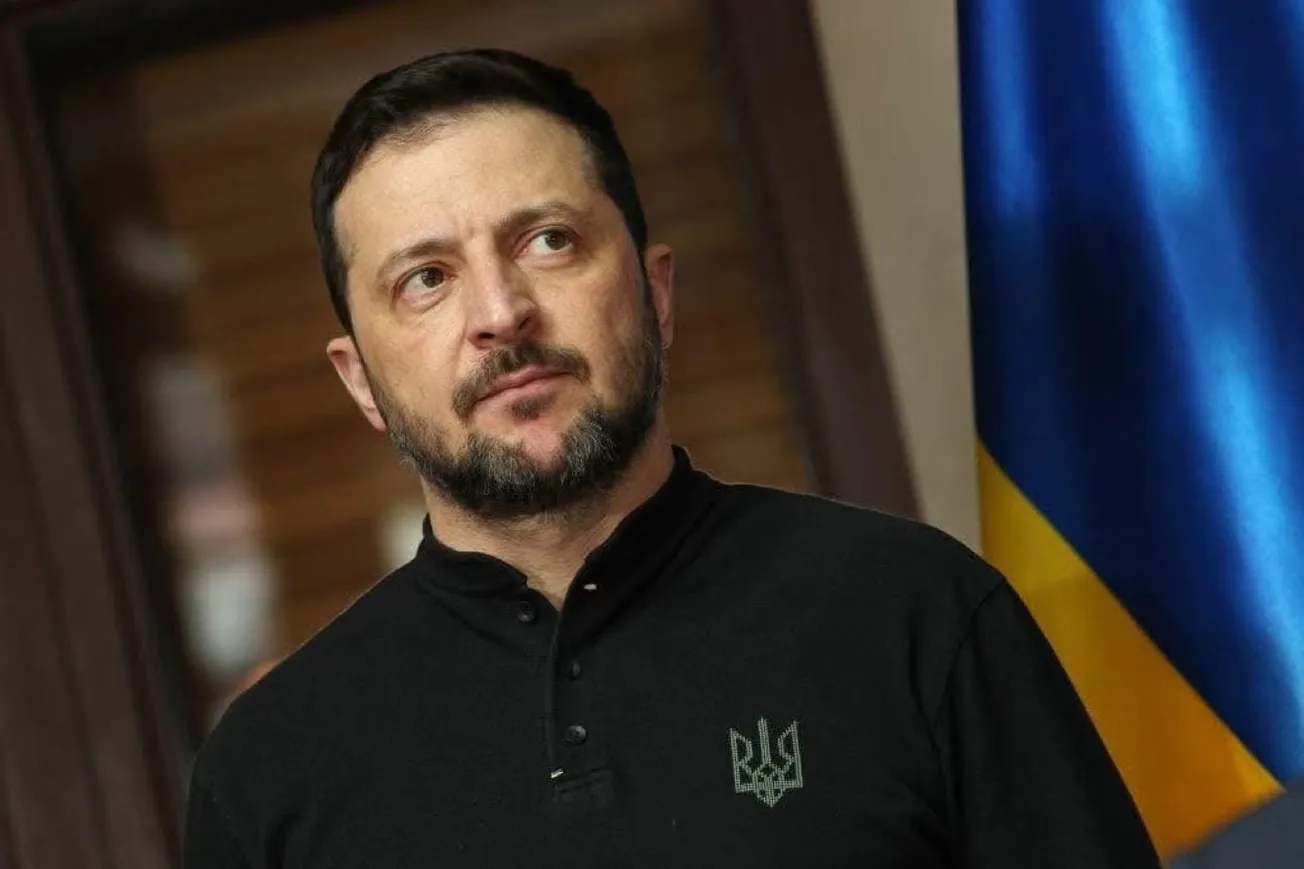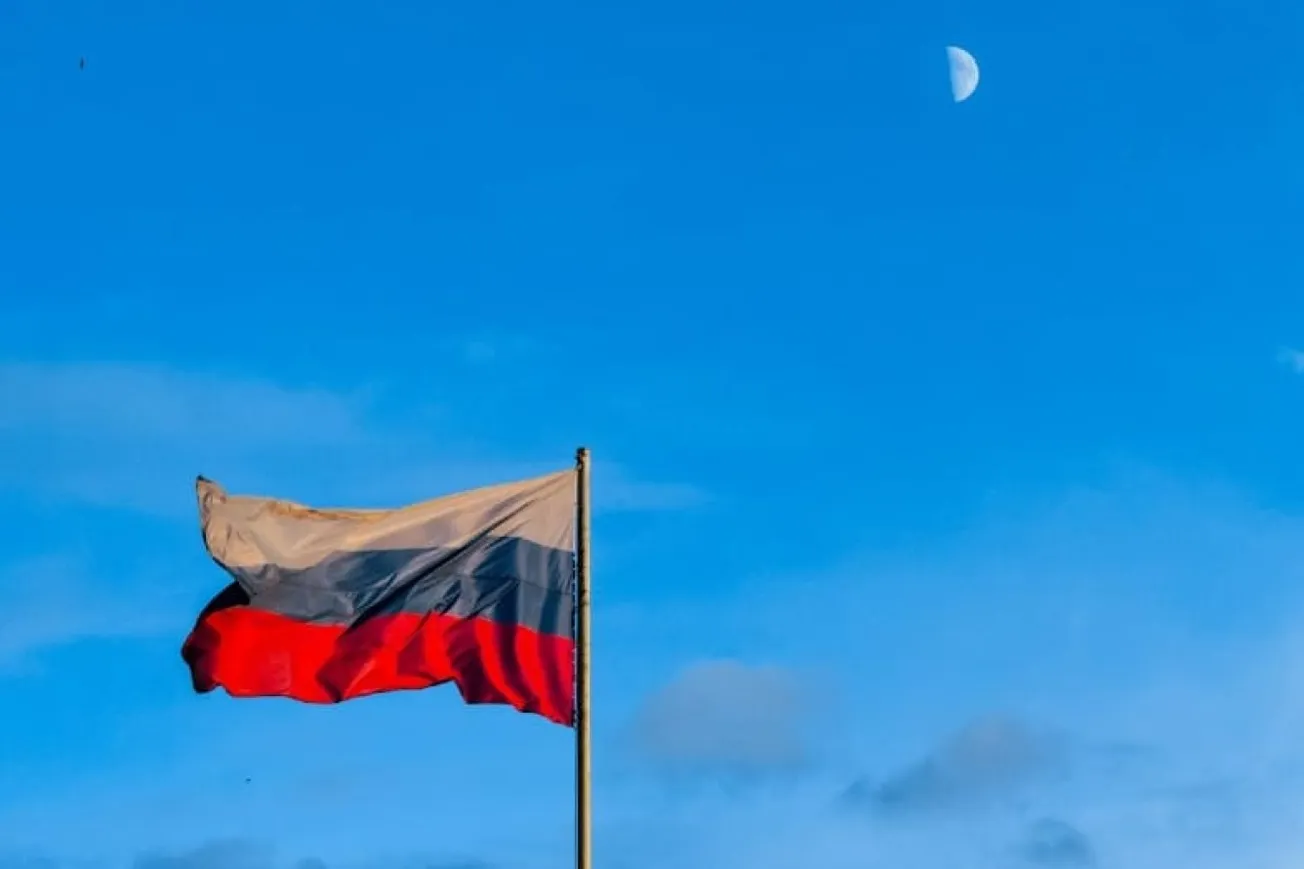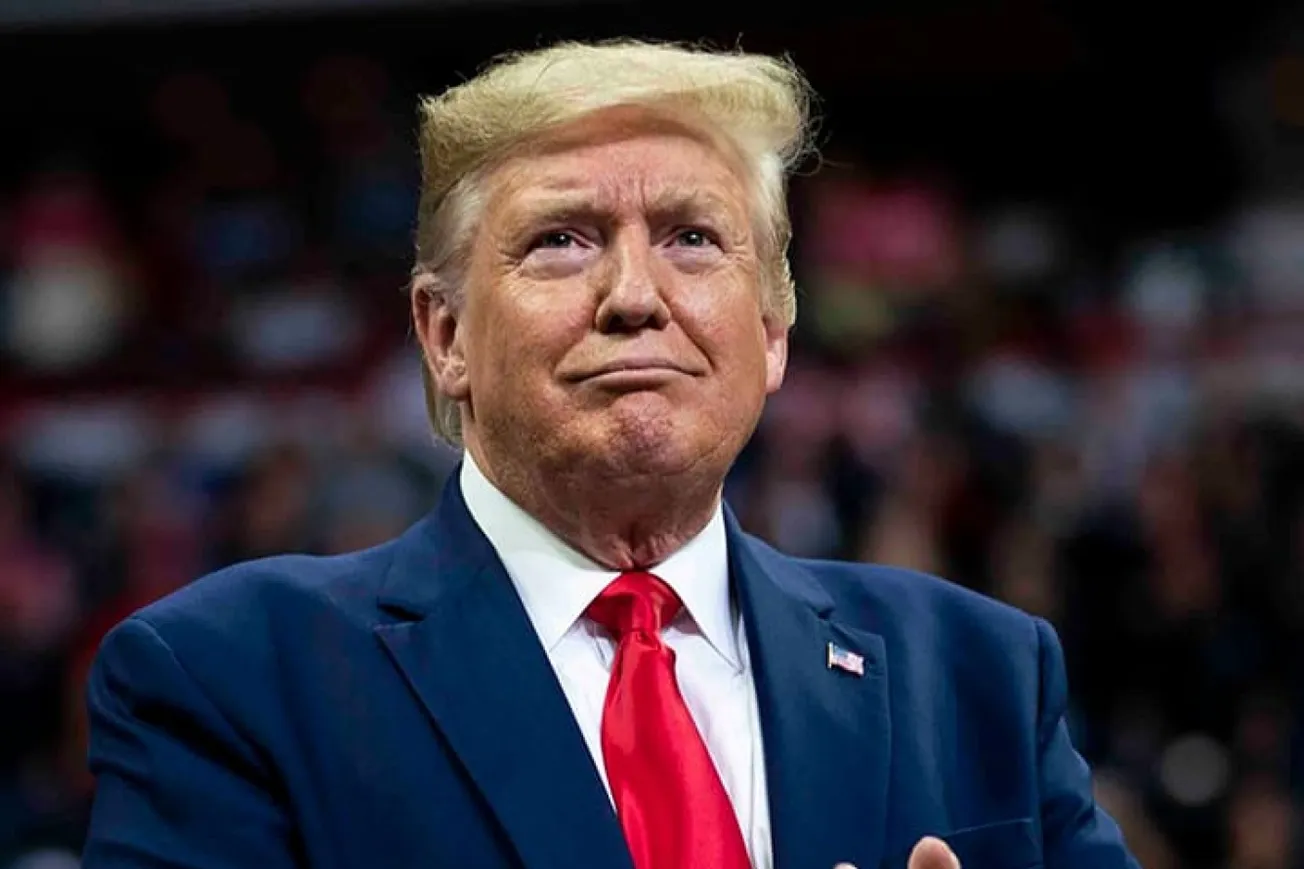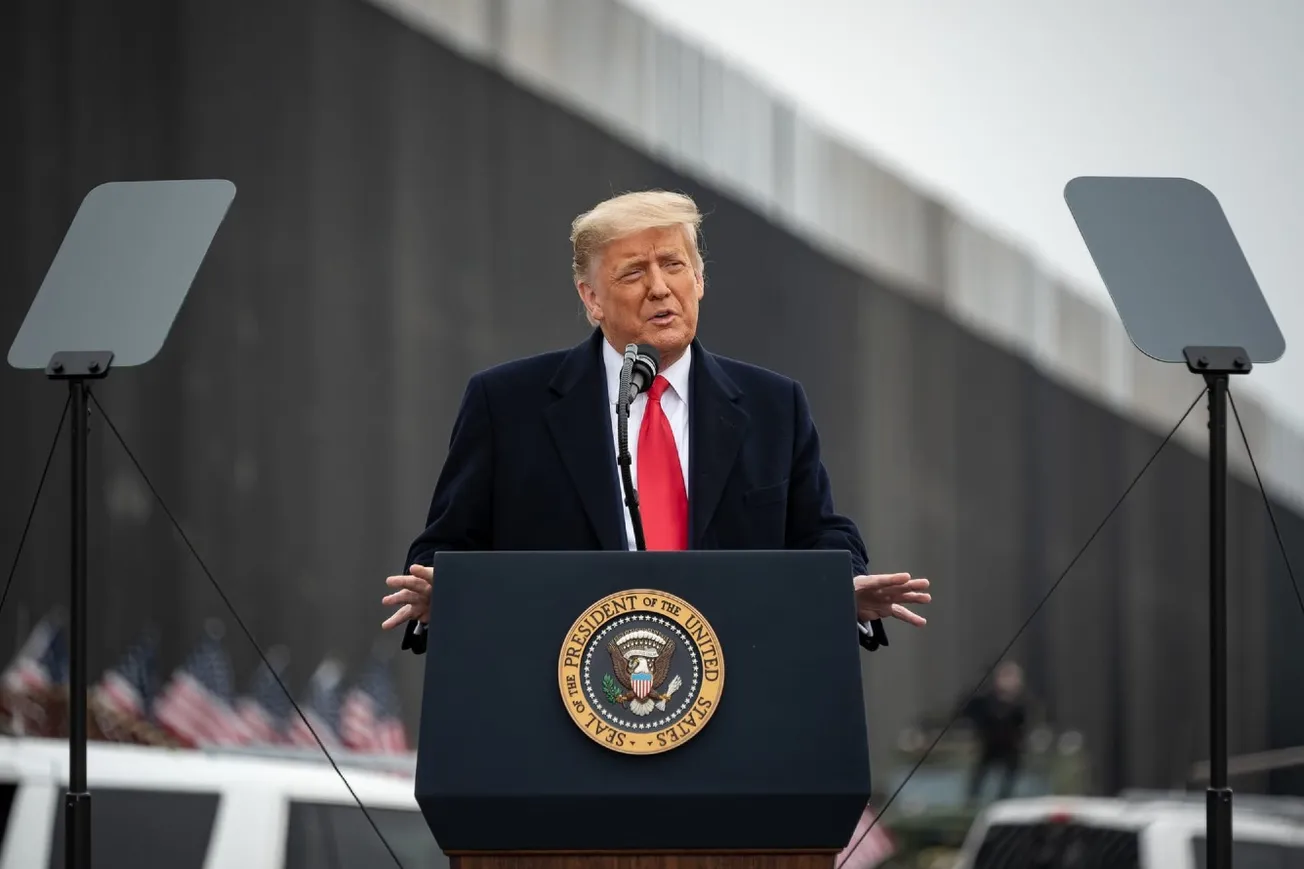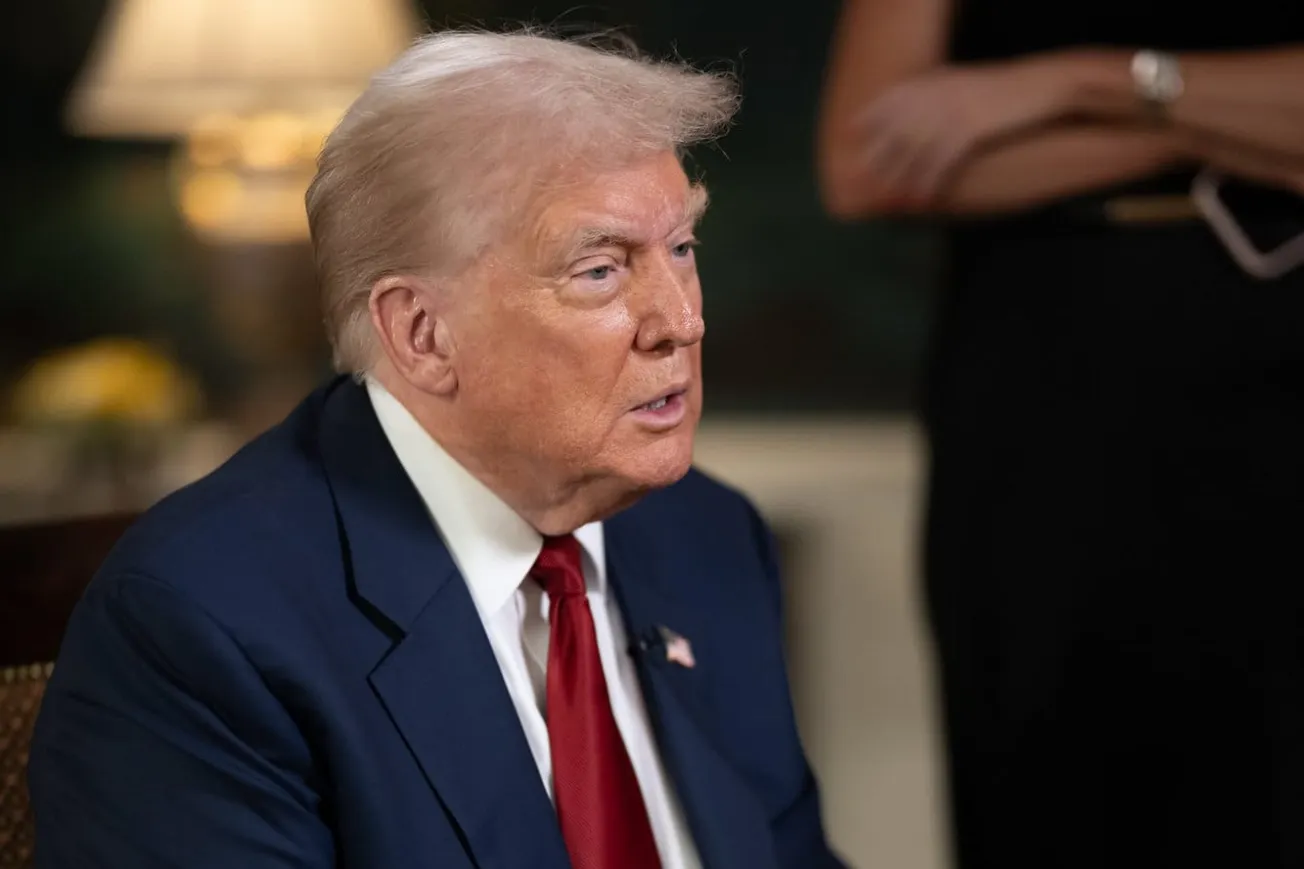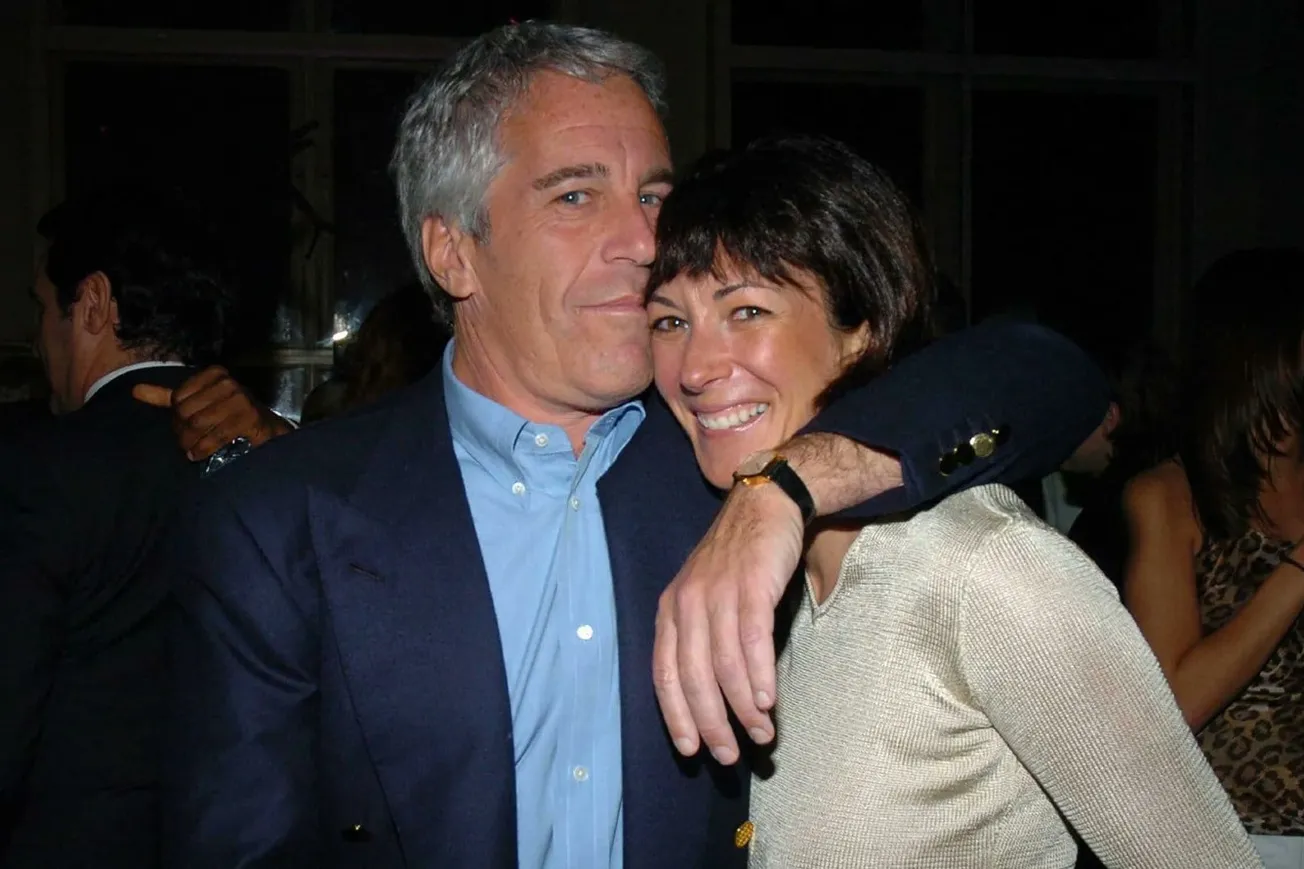The New York Times, covering Secretary of State Marco Rubio's Riyadh meeting with his Russian counterpart, Sergey Lavrov, blared a headline on its front page: "Trump's Pivot Toward Putin's Russia Upends Generations of U.S. Policy."
The story contained a quote from Kori Schake, the director of foreign and defense policy studies at the American Enterprise Institute and a former national security aide to President George W. Bush: "It's a disgraceful reversal of 80 years of American foreign policy." The goal was to demonstrate that the newspaper's criticism of Trump's risky policy was bipartisan.
The problem is that the Times editors didn't adequately fact-check their piece. During the Biden administration, America returned to a Cold War mentality and did everything in its power to isolate and punish Russia for its invasion of Ukraine. Before that, however, America has cautiously sought to welcome Russia into the community of nations. Trump's reset is a common-sense approach to building on this vision.
Ms. Schake's boss, George W. Bush, had led America's policy of resetting relations with Russia. In June 2001, and before 9/11, Bush, who had been president for just a few months, met Vladimir Putin for the first time during a U.S.-Russia summit. The meeting took place against the backdrop of a post-Cold War world where U.S.-Russia relations were more complex, marked by cooperation (e.g., on counterterrorism after 9/11) and competition (e.g., over NATO expansion and missile defense).
During a press conference following the Summit, Bush made a statement that surprised many and has since been widely quoted and analyzed: "I looked the man in the eye. I found him to be very straightforward and trustworthy. We had a very good dialogue. I was able to get a sense of his soul."
Bush later elaborated that he felt Putin was someone he could work with, particularly on issues like fighting terrorism and reducing nuclear arsenals. Bush practiced what he preached, regularly meeting with Putin on at least 15 occasions and advancing America's foreign policy. His conferences with Putin were held in official summit settings, including Slovenia, Moscow, and Sochi. But they also met in more informal settings, such as at Crawford, TX, at Bush's ranch, and the Bush family compound in Kennebunkport, Maine.
Moreover, it was not only Bush. Former President Barack Obama also embraced America's reset policy with Putin and clashed with RINO warmonger and GOP nominee Mitt Romney during the 2012 foreign policy debate. Romney echoed the NeoCon line of the Washington Military-Industrial Complex, calling Russia America's “Number One geopolitical foe.” Romney criticized Obama for not being tough enough on Russia, arguing that Obama's actions and policies posed a significant threat to U.S. national security. Romney was engaging in Biden-speak eight years before Biden took office.
Barack Obama countered Romney's stance by suggesting that the latter’s position was outdated, famously quipping, "The 1980s are now calling to ask for their foreign policy back because the Cold War's been over for 20 years." Obama defended his administration's approach to Russia, highlighting a reset in relations and cooperation on specific issues, such as nuclear arms reduction, while still acknowledging areas of disagreement.
The main objectives were to foster cooperation on mutual interests, reduce tensions, and build a more predictable and constructive bilateral relationship. Key areas of focus included reducing the nuclear threat by negotiating new arms control agreements and collaborating to address global security threats, such as terrorism and nuclear proliferation. Economic and trade relations were also front and center. Working together on regional issues, such as Afghanistan, Syria, Iran's nuclear program, and stability in Europe, also made sense.
Unfortunately, Ukraine has been a constant bottleneck, slowing progress toward this expanded American-Russian partnership. An area rich in natural resources, Ukraine has been a coveted prize for the West and Russia. Going back to the Orange Revolution in 2004, the two sides have tried to manipulate elections and governance in Kyiv. The attempts have resulted in canceled elections, repeat elections, street protests leading to violence, a legitimately elected leader fleeing the presidential palace, and, in 2014, Russian annexation of Crimea—which resulted in the West ejecting Russia from the G8.
Ukraine figured prominently during President Trump's first impeachment. It became a fixture in Washington during Biden's four years in office as he and the NeoCons poured nearly $200 billion to defend Kyiv against Russia.
Under Antony Blinken, the State Department never met with its Russian counterparts since the war began. Biden's Treasury Department ordered more sanctions against Russia than all sanctions against all other nations combined. In the Times piece, Celeste A. Wallander, who dealt with Russia and Ukraine issues as Assistant Secretary of Defense under Biden, summarized Biden's worldview: "We should be talking to them in the same way that we talked to Soviet leaders throughout the Cold War...which is you don't trust them. When you do negotiations, you do them with the presumption that they will violate them. You try to find overlapping interests but recognize that our interests are fundamentally in conflict, and we're trying to manage a dangerous adversary, not become best friends."
This adversarial view became standard operating procedure across all the European capitals during Biden's tenure. The approach nearly drove America to the brink of a nuclear conflict.
A January TIPP Poll finds that 51% of Americans are optimistic about the new administration's ability to resolve the Russia-Ukraine conflict, with Republicans showing the highest confidence. While Democrats and Independents are more divided, the results indicate a public appetite for diplomatic progress.
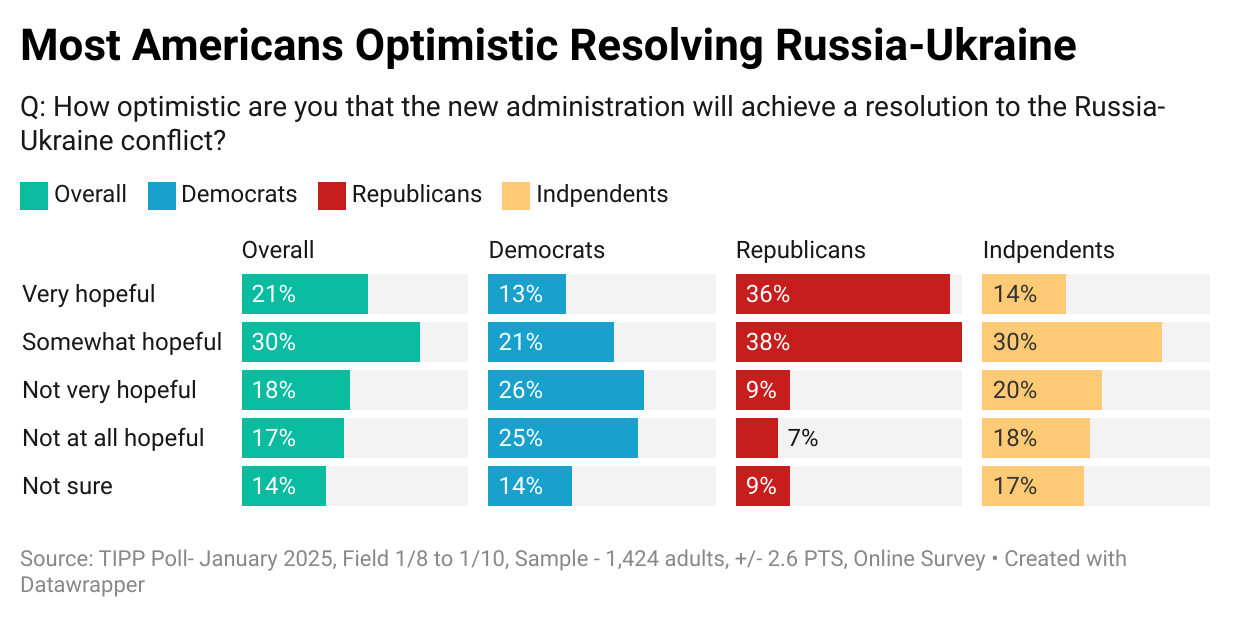
President Trump rightly disagrees with Biden's dark view and recognizes that the fate of one country, Ukraine, ought not to dictate the fate of the free world. In Trump’s view, China is the country to guard against, and supporting Ukraine against Russia will drive Beijing and Moscow ever closer. Trump has not forgotten that three weeks before Russia invaded Ukraine, the Chinese leader Xi announced "a Russian partnership with no limits."
If America, Russia, and China work together to solve problems, the world would be better off. Each country will be better off, too, as every dollar spent on weapons and war is a dollar spent away from improving the lives of its citizens. This common-sense view finds appeal with many ordinary American voters.


